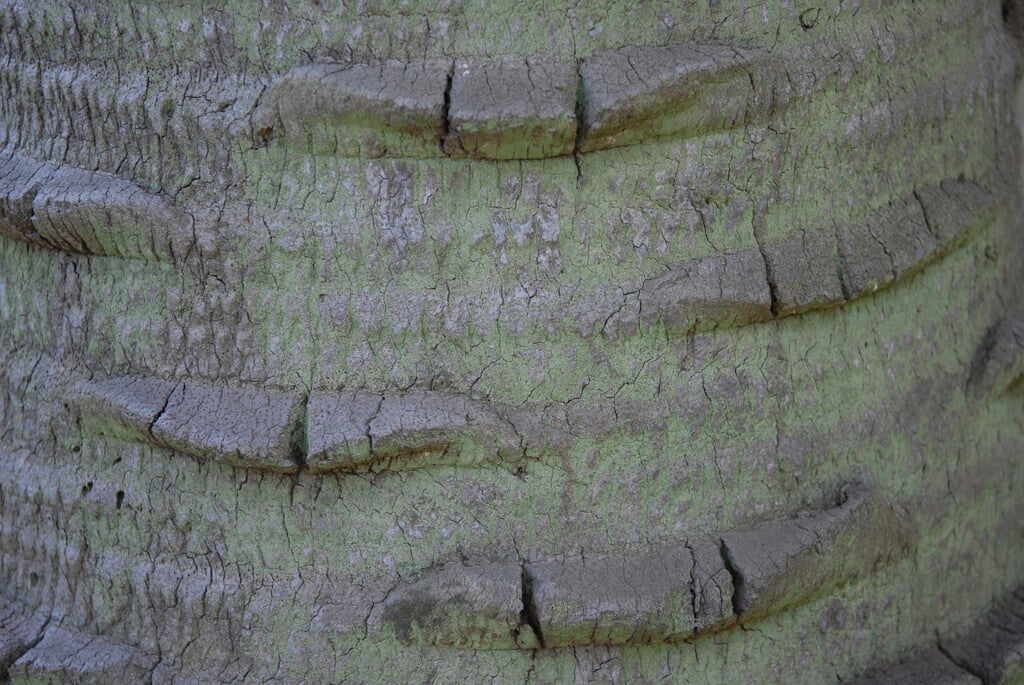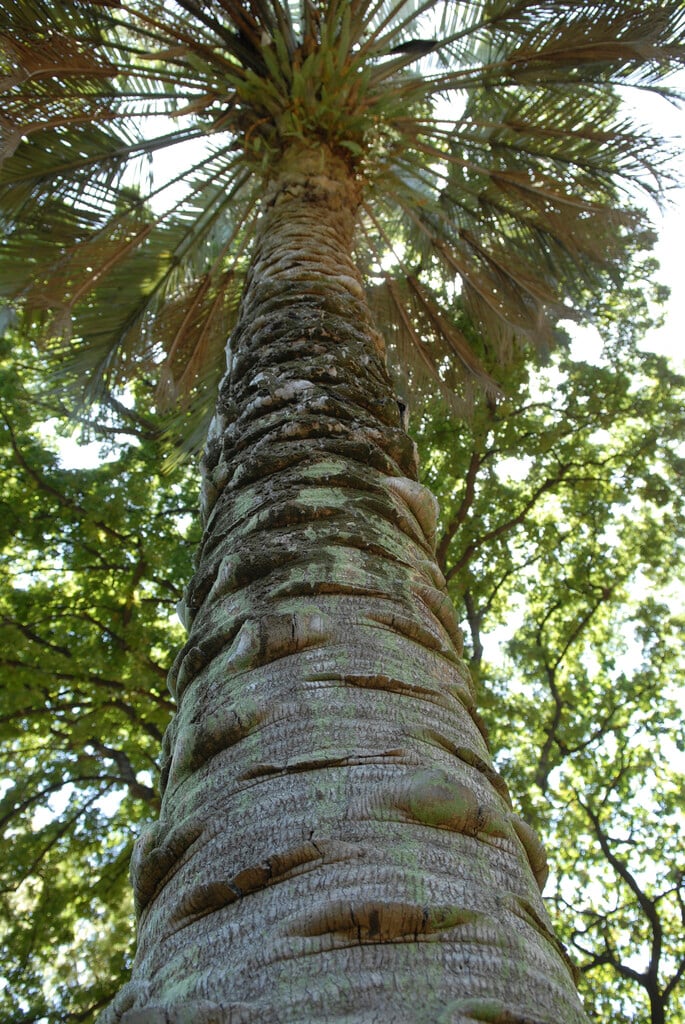Butia yatay
yatay palm
An elegant, single-stemmed palm tree to 10m tall, with strongly arching leaves divided into numerous slender, grey-green leaflets. In summer it produces a long, branched cluster of yellow flowers; these are followed by conical, green to purple fruits. Hardy to around -10°C given a very free-draining soil
Size
Ultimate height
8–12 metresTime to ultimate height
more than 50 yearsUltimate spread
1.5–2.5 metresGrowing conditions
Moisture
Well–drainedpH
Acid, Alkaline, NeutralColour & scent
| Stem | Flower | Foliage | Fruit | |
| Spring | Green Grey Silver | |||
|---|---|---|---|---|
| Summer | Yellow | Green Grey Silver | ||
| Autumn | Green Grey Silver | Green Purple | ||
| Winter | Green Grey Silver |
Position
- Full sun
- Partial shade
Aspect
South–facing or West–facing
Exposure
ShelteredDrought resistance
Yes Hardiness
H4Botanical details
- Family
- Arecaceae
- Native to GB / Ireland
- No
- Foliage
- Evergreen
- Habit
- Columnar upright
- Genus
A genus of relatively hardy palms, native to South America, with feathery, grey-green drooping foliage, some grown as stemless plants and others as small trees. Many species of Butia produce edible fruits which can be made into jellies and alcoholic drinks
- Name status
Correct
- Plant range
- Brazil to Argentina
How to grow
Cultivation
Outdoors grow in deep, well-drained soil in full sun or partial shade. Hardiness is dependent on the ground being dry in very cold spells. See palm cultivation outdoors. Under glass grow in loam-based potting compost in bright, filtered light. When in growth, water moderately and apply a balanced liquid fertiliser monthly; keep just moist in winter. Pot on or top-dress in spring. See palm cultivation indoors
Propagation
Propagate by seed; germination may be slow and erratic
Suggested planting locations and garden types
- Architectural
- City and courtyard gardens
- Coastal
- Mediterranean climate plants
- Patio and container plants
- Sub-tropical
- Conservatory and greenhouse
Pruning
No pruning required
Pests
May be susceptible to glasshouse red spider mite and scale insects when grown under glass
Diseases
Generally disease-free
Love gardening
Sign up to receive regular gardening tips, inspiration, offers and more
View our Privacy Policy
Get involved
The Royal Horticultural Society is the UK’s leading gardening charity. We aim to enrich everyone’s life through plants, and make the UK a greener and more beautiful place.

